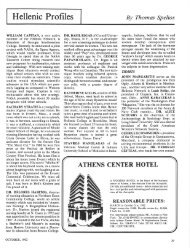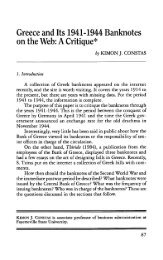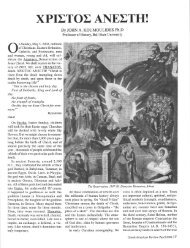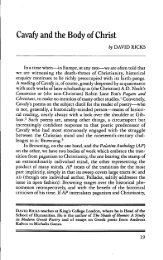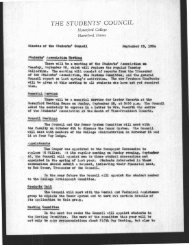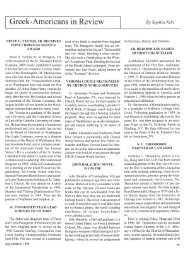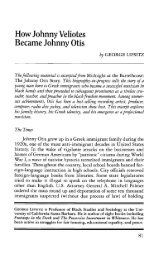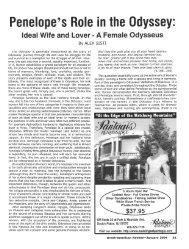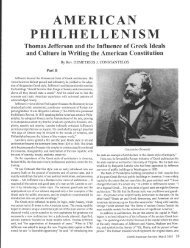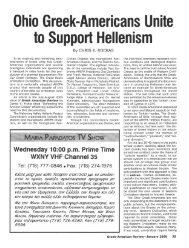The History Man
The History Man
The History Man
You also want an ePaper? Increase the reach of your titles
YUMPU automatically turns print PDFs into web optimized ePapers that Google loves.
44 JOURNAL OF THE HELLENIC DIASPORA<br />
tized in order to contradict the perspective of the completed historical<br />
record. Not only is the continuous thread of causally related events<br />
broken up into its constituent elements, but the transference from historyas-event<br />
to history-as-text, on which all our perception of the historical<br />
past depends, is placed under the microscope. <strong>History</strong>-as-text requires<br />
the verisimilitude of being "true to experience," and here it turns out that<br />
the historian needs also to be a poet. <strong>The</strong> resounding, and often subtly<br />
ironic, inscribed epigrams which appear in Cavafy's poetry are often the<br />
work of professional poets, whose truth to fact is less evident than is their<br />
desire to please. And the writing of history, as in "Anna Comnene" and<br />
"Dareios" is an activity closely allied both in motive and in method to<br />
the writing of poetry.<br />
If time in Cavafy's poetry is the archetypal enemy, it is also a necessary<br />
accomplice. Only by the appeal to history can the poet of the imaginative<br />
present project his consciousness of the passing moment beyond the<br />
bounds of the present to illuminate, and subvert, our received conception<br />
of the past. <strong>The</strong> moment of creativity is validated by the appeal to history:<br />
like Phernazes' dilemma, it can be documented or placed in a historical<br />
context, but at the same time the recording of history is an impossibility<br />
without the imaginative—and often subversive—impulse of the poet.<br />
Cavafy's historical poems validate the poetic impulse as a constant factor<br />
throughout two thousand years of history, while simultaneously erasing the<br />
distinction between what he himself called "writing history" and "making<br />
poetry."<br />
Greece's leading biweekly of<br />
independent commentary and analysis<br />
For subscription information, write:<br />
ANTI<br />
DIMOCHAROUS 60 e ATHENS 601, GREECE



